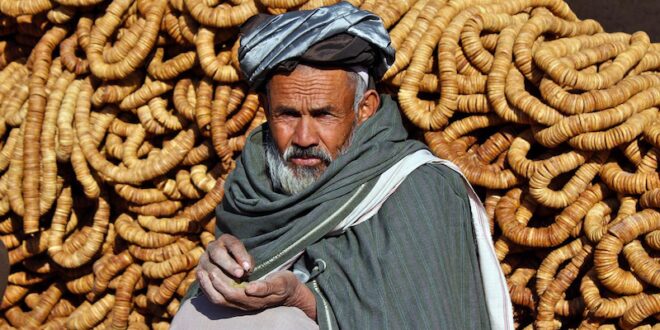With millions more internally displaced as well as an estimated 2.3 million residing in neighboring Pakistan and Iran, Afghan refugees are among the biggest and longest-lasting refugee communities in the world. After the Soviet invasion in 1979, the civil war in the 1990s, and the invasion of Afghanistan by the United States in 2001, the bulk of Afghan refugees left their homeland. Many of them were reared in exile, where they were unable to access valid documentation, schooling, medical care, or employment possibilities.
Over the course of more than 40 years, Pakistan has provided housing, security, and emergency assistance to Afghan refugees. However, Pakistan has also experienced challenges and complications as a result of the massive refugee population, including security, economic, social, and diplomatic scrutiny from the global community as a whole. Environmental problems have gotten worse in Afghanistan, though Pakistan has urged the voluntary and dignified return of Afghan refugees to their country on several occasions, particularly in recent months after the withdrawal of US and NATO forces and the Taliban’s seizure of power. This has led to a fresh wave of emigration and instability, both within and beyond the borders of Afghanistan. Since January 2021, 600,000 Afghans have experienced internal displacement, while more than 120,000 have fled to other nations, mostly Pakistan and Iran.
In light of this, a number of Indian media sources have started a false flag campaign against Afghan refugees living in Pakistan, charging them with involvement in anti-Pakistan activities including terrorism, espionage, and separatism. Additionally, it has been claimed by these media sites that Pakistan is destabilizing Afghanistan and India through the use of Afghan refugees as a front.
For example, on October 6, 2021, the renowned Indian daily Times of India published a story with the headline “Imran Khan made lives of Afghan refugees miserable amid false promises of granting full citizenship.” According to the story, Imran Khan, the prime minister of Pakistan, deceived Afghan refugees by breaking a 2018 commitment to give them citizenship. In addition, Pakistan was charged in the report with assisting the Taliban government in Afghanistan and using Afghan refugees for political purposes. Another illustration of the same story was published on October 6, 2021, by ANI News, a significant Indian news organization. The article reiterated the same claims made by the Times of India while also alleging that Pakistan had failed to shield Afghan refugees from abuse and prejudice on the part of Pakistani society and the government.
Another instance is the Hyderabad-based Urdu daily The Siasat Daily, which on June 20, 2023, ran the headline “Afghan fans desecrate Pakistan flag in Islamabad.” According to the post, after Pakistan’s victory over Afghanistan in a cricket match, several Afghan supporters tore and burned the Pakistani flag. In addition, the story said that the supporters, who were seated outside Islamabad’s National Press Club, were Afghan refugees with ties to terrorist organizations in their home country. However, there is no indication that Afghan refugees in Pakistan or along its border have engaged in acts of extremism. Recently, the White House’s National Security Council spokesman, John Kirby, told reporters in a press briefing on July 17, 2023, “We’ve seen no indication that Afghan refugees in Pakistan or along that border are guilty of acts of terrorism.”
By disregarding their hardship, inflating the numbers, and disseminating anti-Pakistan propaganda, Indian and like-minded Afghan media are misreporting the status of Afghan refugees in Pakistan. However, this is based on twisted information that does not accurately reflect the situation on the ground. On the other hand, out of the 21000 Afghans residing in India, roughly 11000 are registered as asylum seekers but are not recognized as refugees by the government. India, meanwhile, asserts that it is Afghanistan’s friend and ally. Asylum seekers from Afghanistan are subject to harsh policies in neighboring countries like Iran and Turkey, including geographical limitations and forcible deportation, unlike Pakistan.
Recognizing Pakistan’s efforts, UN High Commissioner for Refugees, Filipo Grandi said, “Hosting refugees is a responsibility that has not been equitably shared. We pay tribute to the generosity of Pakistan for hosting millions of refugees for 40 years”. On February 18, 2020, UN Secretary General Antonio Guterres while addressing the International Conference in Islamabad, urged the world to display leadership like Pakistan in support of refugees. He said, “Pakistan today is the world’s second-largest refugee hosting country. Pakistan has provided the world with a global public good by supporting Afghan refugees, and it’s time for the international community to assume its responsibilities and to support Pakistan very meaningfully”.
Subsequently, UNHRC’s report, titled “Regional Refugee Response Plan for Afghanistan Situation, January–December 2023,” acknowledged Pakistan’s efforts for Afghan refugees and underlined future plans for improvement along with partner agencies. A large number of refugees studying in Pakistan have become successful academicians, sportsmen, businessmen, and in a host of other fields. Similarly, Afghan girls and women living in Pakistan as refugees have become success stories and role models of women’s empowerment.
The false flag propaganda by Indian media against Afghan refugees in Pakistan is based on distorted facts, biased opinions, and fabricated evidence. These articles are not only unethical and unprofessional journalism but also a violation of international law and human rights. This is harmful for both the refugees and the host country, as it creates mistrust, resentment, and a negative image of Afghan refugees in Pakistan, which undermines their rights and dignity. Moreover, they are contrary to the principles of refugee protection and solidarity. The international community should monitor and challenge such media reports and support the efforts of Pakistan and UNHCR to protect and assist the refugees.
 Eurasia Press & News
Eurasia Press & News




